Essential staff keep campus moving forward during coronavirus closure
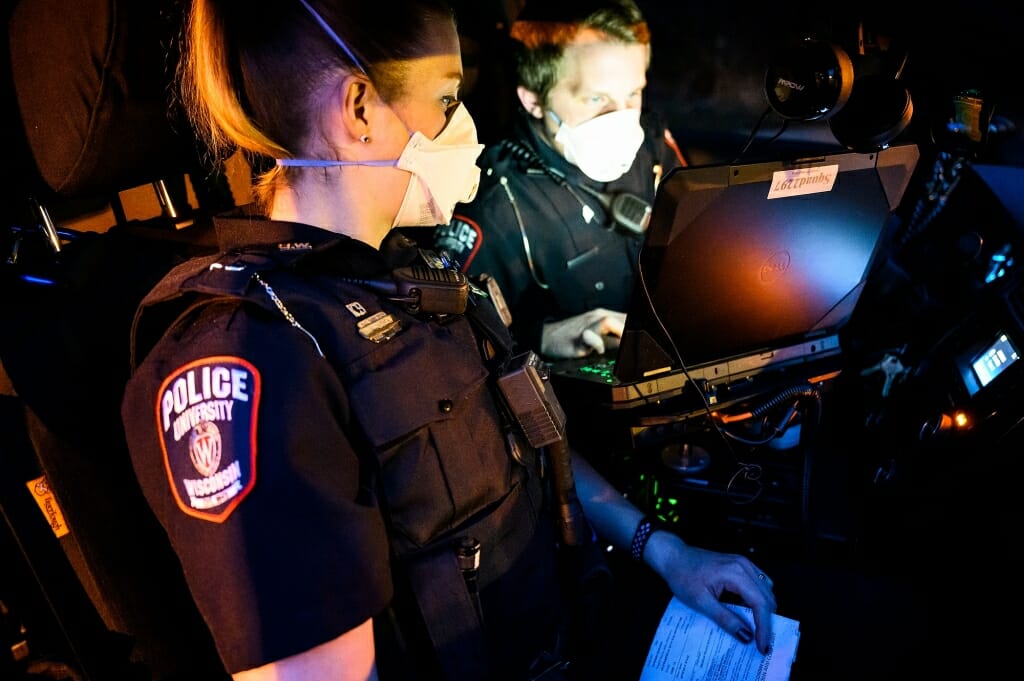
UW-Madison Police Department officers Nicki Zautner and Jake Tincher file a report in their squad vehicle after apprehending an individual reportedly harassing members of the public at the Memorial Union Terrace. Photo: Jeff Miller
While many members of the UW–Madison community have transitioned to telecommuting, a core group of employees, including many in Finance and Administration units, continue to report to campus to provide essential services during the COVID-19 pandemic.
Still practicing social distancing and following self-monitoring guidelines, they, as well as many employees from other campus units, are serving on the front lines during this challenging time.
These essential staff members are ensuring employees and students will be able to return to our classrooms, labs, residence halls, offices, and outdoor spaces when it is safe to do so. They’re providing meals for the hundreds of students who remain in the residence halls. They’re maintaining critical utilities and operations to keep buildings running. They’re supporting IT resources so that others can learn, teach, and work remotely.
“Our campus community owes a debt of gratitude to these employees for leaning in and figuring out how to get things done at such a difficult time,” said Laurent Heller, Vice Chancellor for Finance and Administration. “It’s inspiring, but it’s not surprising. Our essential staff play a critical role in supporting the mission of UW–Madison, not only now during this global pandemic, but day in and day out, 24 hours a day and 365 days a year.”
The following photos provide a snapshot of some of the essential staff from Finance and Administration who are moving UW–Madison forward. All images were made between April 8-16.
Text by Alex Peirce, Director of Communications for Finance & Administration
Photos by Jeff Miller, University Communications
University Housing
University Housing staff continue to provide essential services to maintain the facilities and support approximately 500 students remaining in four residence halls, as well as over 2,500 residents living in University Apartments.
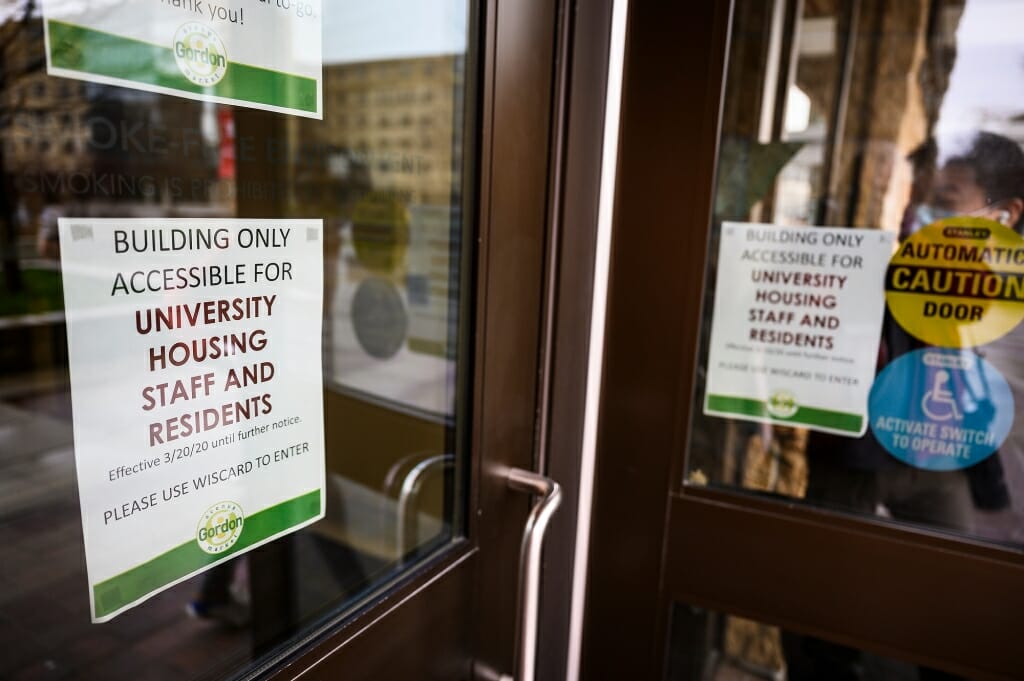
Only certain University Housing staff and students authorized to remain in the residence halls have Wiscard access to the now locked Gordon Dining and Event Center, the only campus dining location open during the COVID-19 pandemic. Photo: Jeff Miller
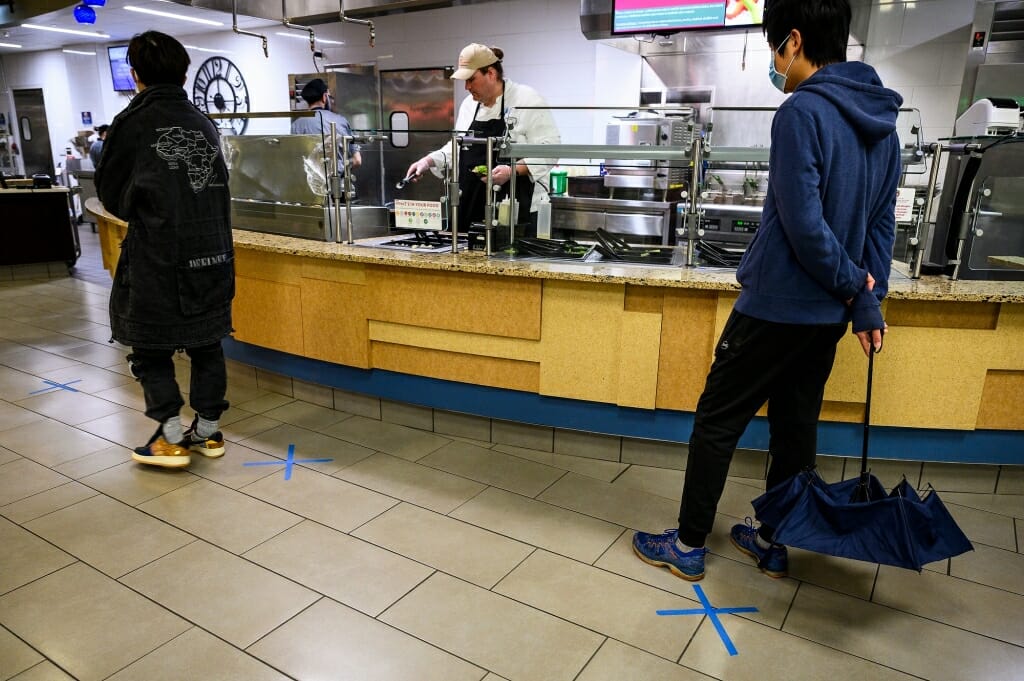
Essential staff at Gordon Avenue Market prepare and serve carryout-only meals for students still living on campus. To encourage social distancing, staff have taped X-marks spaced six feet apart on the floor. Photo: Jeff Miller
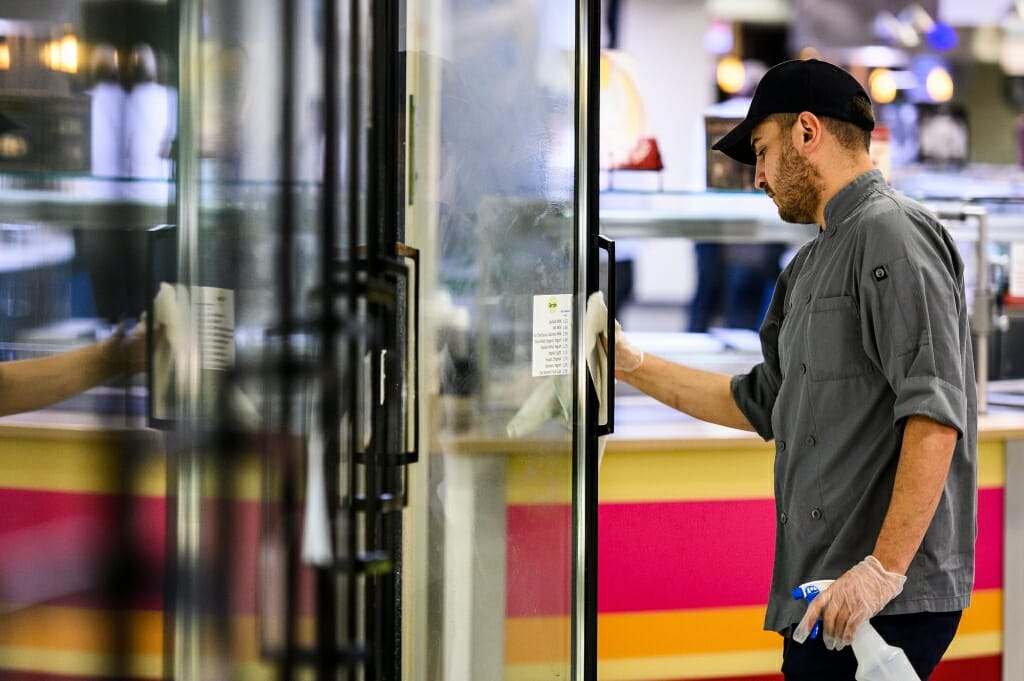
Benji Erk, an essential food service staff member with University Housing, cleans and disinfects cooler doors and other high-contact surfaces to help prevent spread of germs and viruses inside Gordon Dining and Event Center. Photo: Jeff Miller
Division of Information Technology
Essential staff at the Division of Information Technology and Administrative Information Management Services provide necessary IT support that allows the campus community to learn, teach, and work remotely during the COVID-19 pandemic. From providing laptop rentals and printing services to monitoring cybersecurity and server upgrades in the DoIT Data Center, these staff members ensure continuity in operations for academic and administrative units that currently exist almost entirely online.
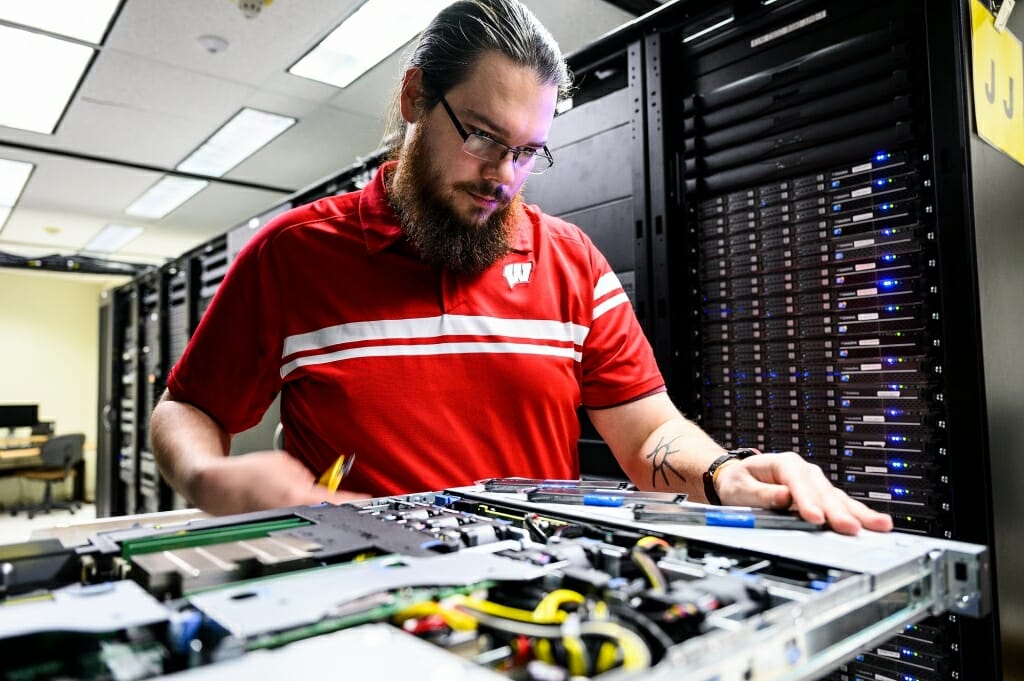
Operations technologist Dan Rosenberg upgrades computing hardware in a server at the DoIT Data Center in Computer Sciences and Statistics. Photo: Jeff Miller
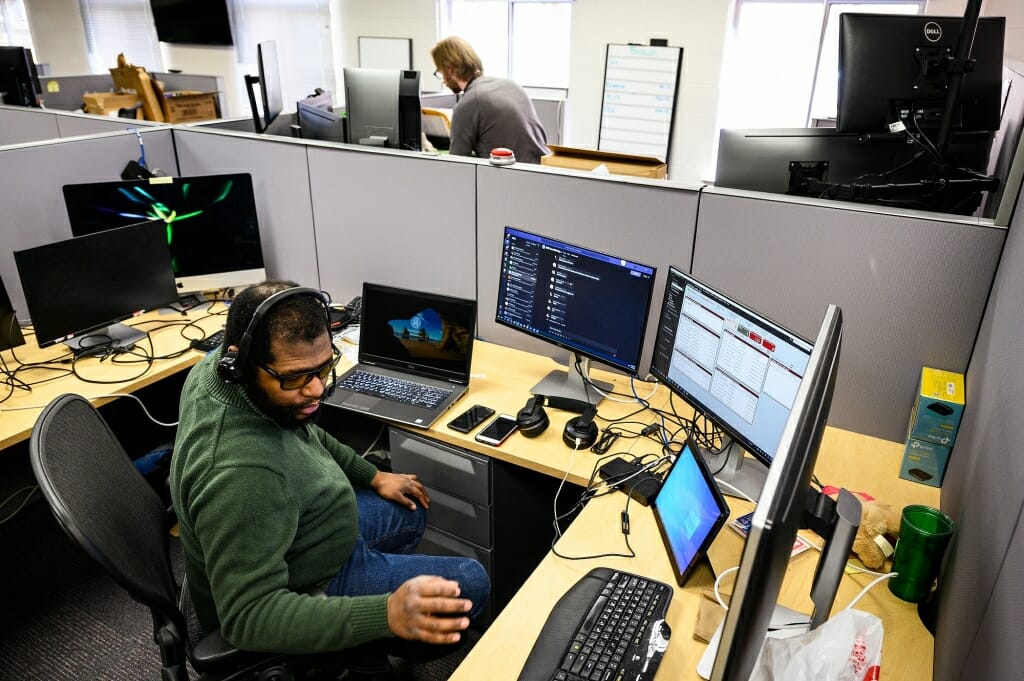
DoIT’s Alex Robinson (foreground) and Ben Pommerening provide desktop computer technical support while working in Rust-Schreiner Hall. Photo: Jeff Miller
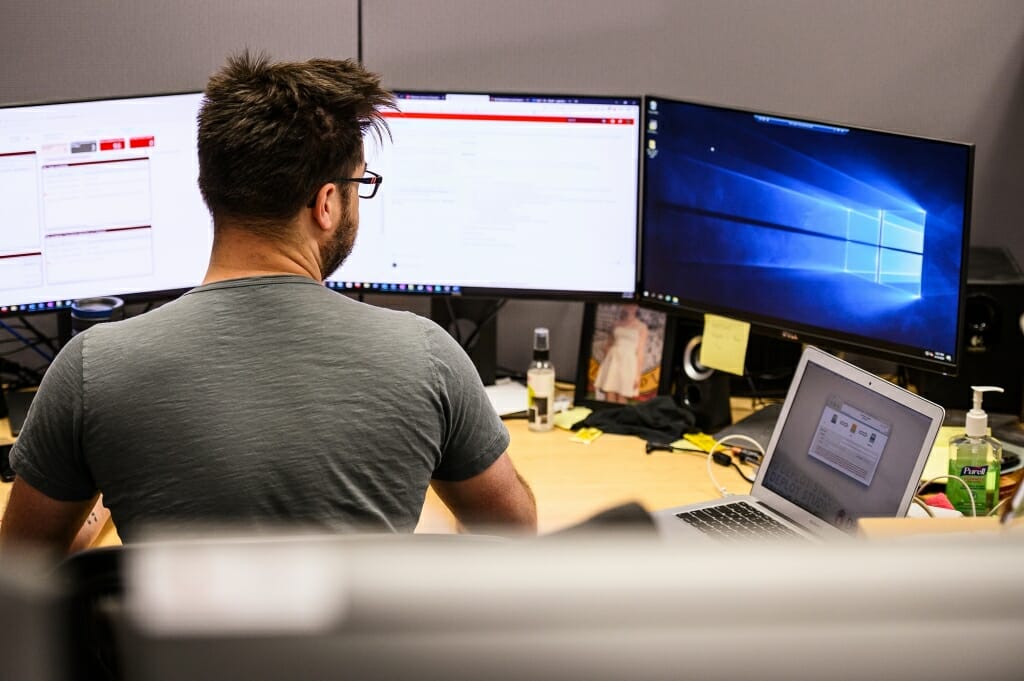
Kit Plumb, DoIT team lead, images computers and provides desktop computer technical support while working in Rust-Schreiner Hall. Photo: Jeff Miller
Facilities Planning & Management
Essential staff in Facilities Planning & Management (FP&M) are responsible for maintaining key operations and maintenance of campus buildings, grounds, and utilities. Custodial crews follow CDC guidelines for cleaning and sanitizing workspaces across campus while some opt to further protect themselves with self-provided face coverings.
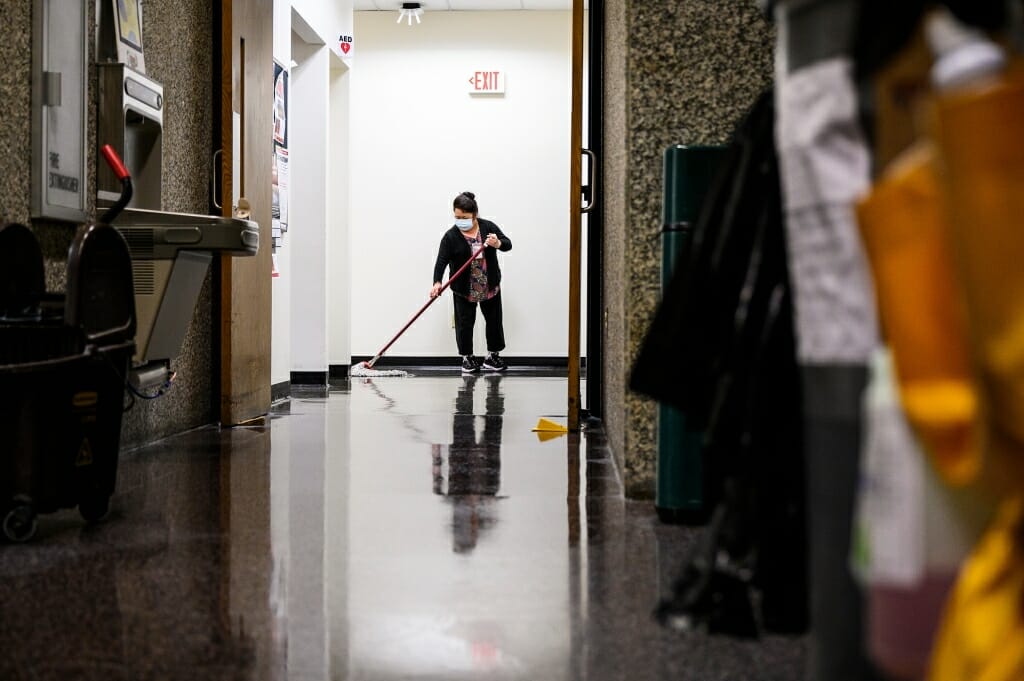
Mailo Thor, a custodian with FP&M, mops a hallway in the WARF Office Building. Photo: Jeff Miller
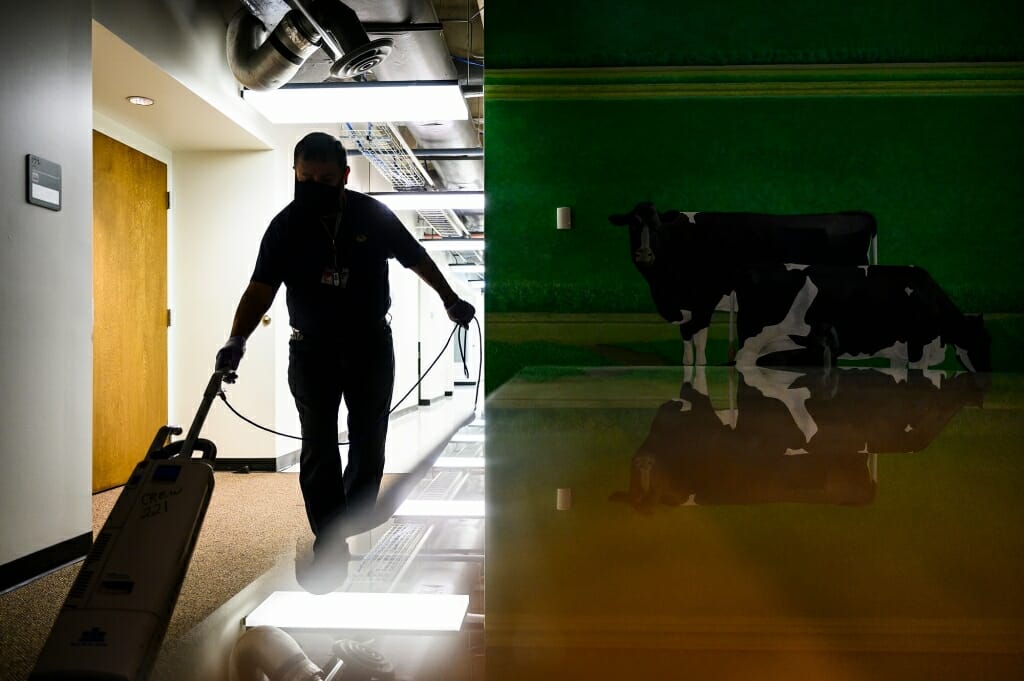
Wearing a self-made face covering, Hipolito Torres, a custodian with FP&M, vacuums floors in the U.S. Dairy Forage Research Center. Photo: Jeff Miller
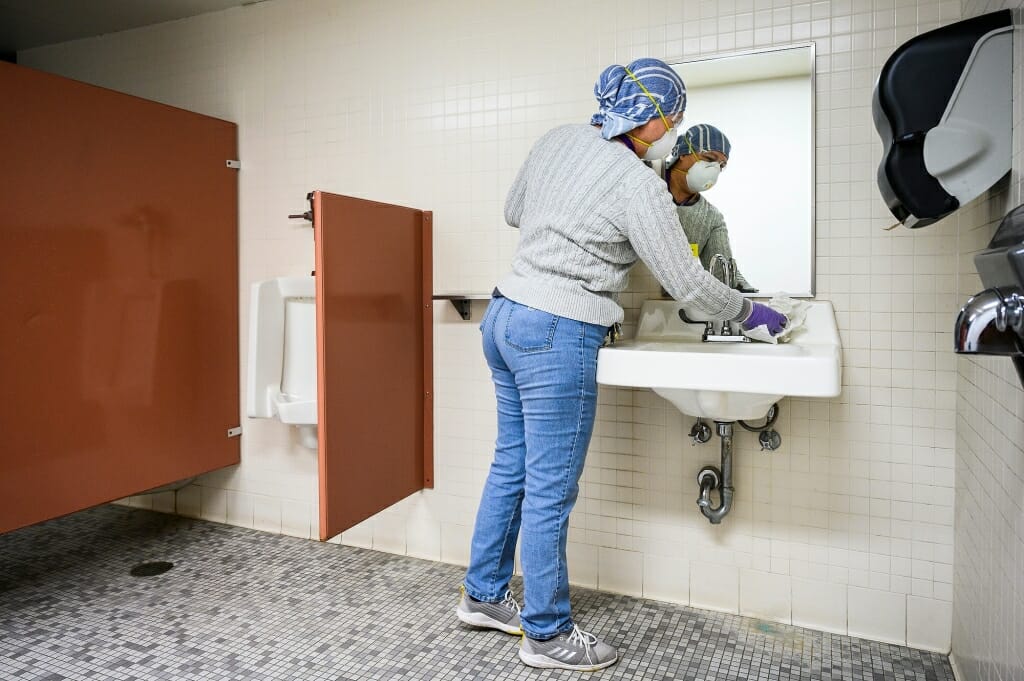
Maria Alvarez, a custodian with FP&M, cleans a restroom according to CDC guidelines and while wearing a self-provided mask in the U.S. Dairy Forage Research Center. Photo: Jeff Miller
UW-Madison Police Department
The UW–Madison Police Department is considered essential staff during the COVID-19 pandemic. UWPD officers were among the first responders to the double homicide in the UW Arboretum in March. In addition, UWPD continues its patrol services and responds to a variety of calls across campus, including from the Memorial Union Terrace as seen below.
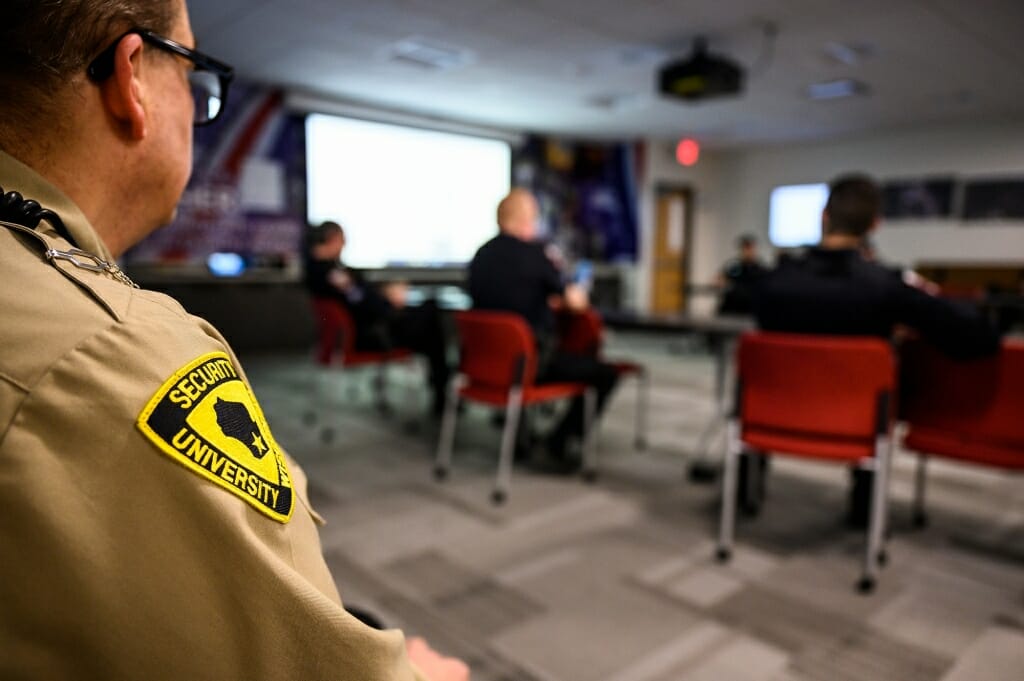
UWPD law-enforcement and security officers meet for a briefing before departing the station for a second shift of patrolling the UW–Madison campus. Photo: Jeff Miller
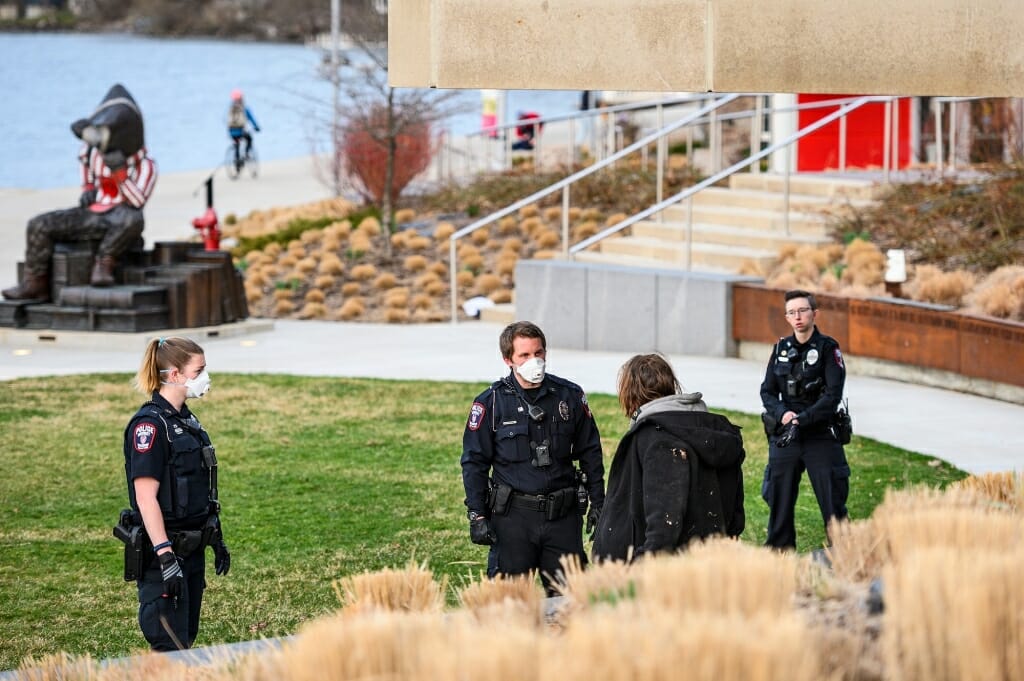
From left to right, UWPD officers Nicki Zautner, Jake Tincher and Jessie Koutoulas interview a man near One Alumni Park. The man was acting agitated and reportedly harassing people at the nearby Memorial Union Terrace. Photo: Jeff Miller
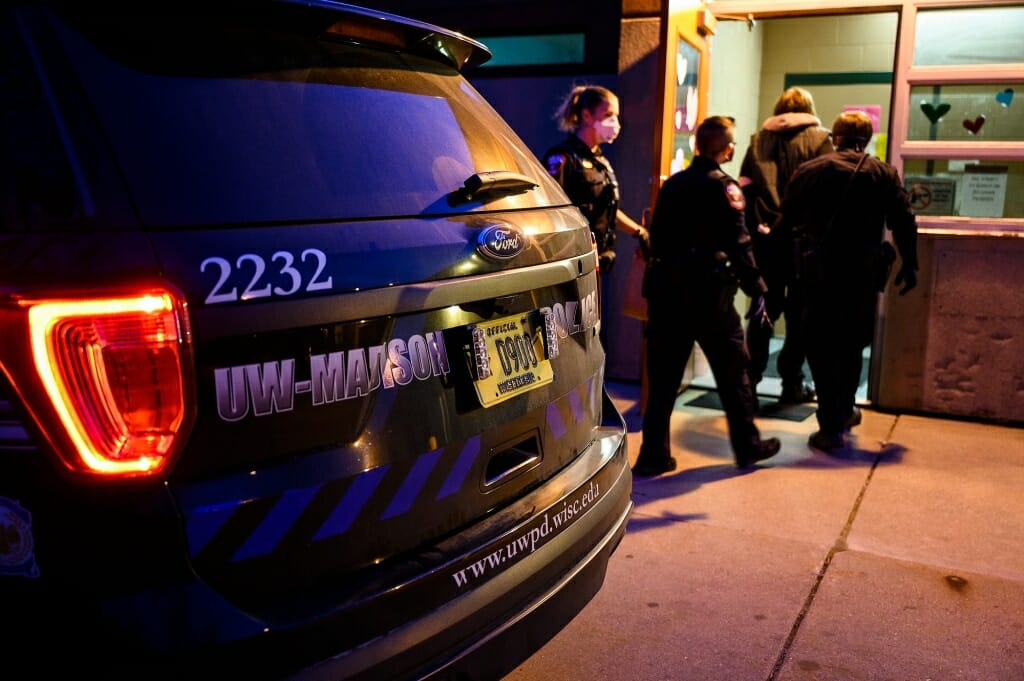
Officers Zautner, Koutoulas, Tincher escort the man into a detox facility. Photo: Jeff Miller
Proper safety measures and social distancing protocols were observed during the creation of this story.
